
We aim to educate residents and practicing physicians on the business of medicine.
Featured Video
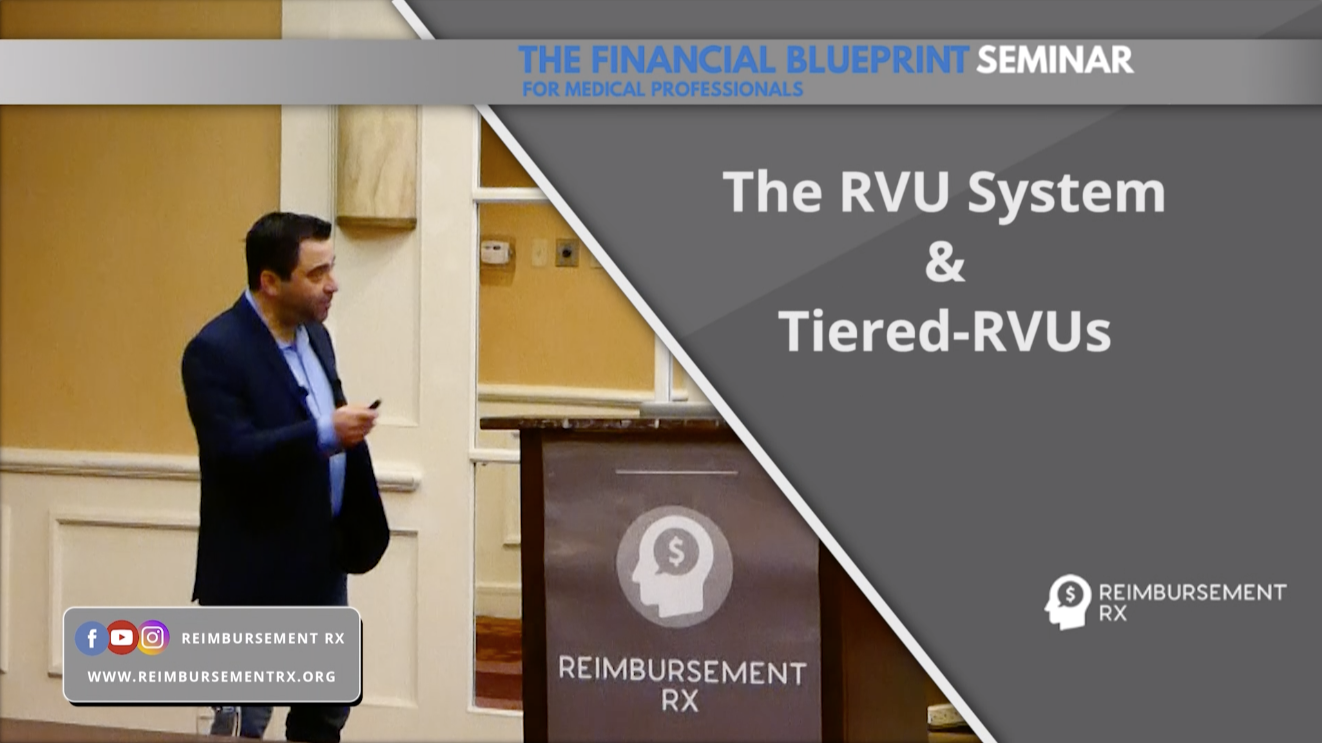
Most Popular
MACRA is a new initiative passed by our federal government mandates that doctors across all specialties attest to doing something meaningful. This means that going forward a physician’s compensation will not be only tied to fee-for-service anymore, but it's going to be tied to the quality of work.
We've put together an edit of some of our previous videos to hammer home an important point that we have been emphasizing over and over : PHYSICIANS, NPs, AND PA's SHOULD NOT BE AFRAID TO ASK THEIR MEDICAL GROUPS ABOUT HOW AND WHY THEY ARE GETTING PAID WHAT THEY ARE GETTING PAID!
It's not commonly known, but all medical and surgical residents and fellows should be aware that getting that first perfect job out of training is not just a matter of medicine or location - it's a matter of business too!
PHYSICIANS: Does your medical group have a TIERED RVU system? In this video, we explain why all doctors paid on RVUs worked should make sure their medical group has a Tiered RVU system.
Doctors: Here's what you need to know about the RVU compensation system.
Browse our Entire Library
Newly minted physicians feel powerless when they negotiate their salaries for employment at hospital giants.
Currently, there is virtually no transparency in healthcare and little has been done to change this situation. But there should be something done about it -- and physicians should act to advocate for these changes. In fact, there is growing pressure from patients, healthcare advocates, and government officials to make healthcare more transparent. In this article, I want to discuss the problem and what to do about it.
Telemedicine is a rapidly expanding mode of medical practice, since it allows physicians and other health professionals to evaluate, diagnose, and treat patients remotely using telecommunications technology. If you don’t already have such a system in place you should set this up because it’s becoming an increasingly important part of the American healthcare system.
This lesson on RVUs from The Financial Blueprint Seminar covers the following key topics: - What is an RVU? - RVUs vs. Work RVUs - How RVUs are calculated. - How RVUs translate to payment (for employed vs. independent docs) - Flaws with the traditional RVU Model - Tiered-RVUs and why your group needs this system
There was one common thread I noticed in my years as a medical student, then a medical resident, then an employed physician, and finally an independent doctor running my own private practice: most doctors don't understand the business of medicine.
Medical group administrators would rather you don't ask questions about their RVU system - because a lot of times they benefit from it more than you might realize.
Physicians often miss out on reimbursement by UNDER-CODING for services they are already performing!
Physicians are NOT responsible for the overspending in healthcare! Yet, why are we often blamed for this?
Physicians (and all healthcare professionals) need to understand the financial side of medicine, not only for their sake, but for their patients as well. We at Reimbursement Rx are often questioned (and critiqued!) about providing and supporting business & financial education for physicians, however, this education is not just about the physicians.
Physicians are taught to look at medical data to make important decisions, but unfortunately when it comes to financial data, we often miss the mark! A deeper dive into the data around healthcare expenditures in the U.S. reveals that physicians don't make as much as we might think.
Medicine is COMPLICATED, yet the latest Medicare proposal would remove increased compensation for complicated patients. ------------------------------------ We urge all physicians to discuss this new change with their local AMA chapter and comment on the CMS website: https://www.regulations.gov/docket?D=CMS-2018-0076.
"I don't even take Medicare so it doesn't affect me." It's a common misconception that Medicare changes only affect those doctors who take Medicare, but this is not true! The entire commercial health insurance world follows whatever Medicare does, so if Medicare passes this new proposal to remove different compensation for different levels of service, commercial carriers will follow!
The long-held attitude among physicians to keep their rates quiet is what is allowing them to be taken advantage of by medical group administrators and insurance companies
We're told that young doctors coming out of residency DON'T want to start a private practice. Is this true? And does private practice still have a place in medicine?
Healthcare costs keep rising and rising in the U.S. - but doctors are NOT getting richer! Although physicians might be blamed for rising healthcare costs in the US, rising healthcare costs often have nothing to do with the actual medical service physicians provide.
Patient satisfaction scores are supposed to lead to better medical care and bonuses for good work - but all they really do is frustrate physicians.
In this weeks update from Reimbursement Rx, we tackle one of our most popular questions - What is the most important thing doctors need to know when signing their contracts? We also delve into the topic of healthcare spending, discussing what Amazon and Indian Surgeons show us about reducing healthcare costs but keeping quality of care consistent.
What should physicians ASK for when negotiating their employment contracts? Well, anything they want! Physicians are in high demand - take advantage of it!
In the past month Dr. Lakowsky and the rest the team at Reimbursement Rx has published some pretty bold statements. Well based on recent developments, it looks like those statements were right!
Direct Primary Care seems to be the "new" model of delivering healthcare on the block that physicians all across the U.S. have been talking about, but we believe that there is something missing from it.
The basic reason for doctors to understand billing practices is simple - this is how they get paid! Yet, this system is constantly changing both from the doctor's and patient's perspective. When doctors don't keep up, they miss out on compensation on their side and clarity from the patient's side.
No, it’s not the Krebs cycle - It’s how physicians actually get paid. This simple example demonstrates how complicated the financial flowchain in medicine really is.
MACRA is a new initiative passed by our federal government mandates that doctors across all specialties attest to doing something meaningful. This means that going forward a physician’s compensation will not be only tied to fee-for-service anymore, but it's going to be tied to the quality of work.
As we alluded to in many of our previous posts and videos, one of the most important problems facing healthcare is absolute and total lack of transparency. A recent lawsuit filed by the State of California has exposed that practices that cost BOTH patients AND physicians as a result of a lack of transparency are very real in our healthcare system today.
This is a recording of our first webinar recorded live from Las Vegas! JOIN OUR NEXT WEBINAR back on this channel on March 28th at 1PM EST/10AM PST on the Reimbursement Rx Youtube channel!
We've put together an edit of some of our previous videos to hammer home an important point that we have been emphasizing over and over : PHYSICIANS, NPs, AND PA's SHOULD NOT BE AFRAID TO ASK THEIR MEDICAL GROUPS ABOUT HOW AND WHY THEY ARE GETTING PAID WHAT THEY ARE GETTING PAID!
"How does an insurance company or pharmacy know what is right for MY patient?!" It's a common frustration, but physicians are NOT powerless when it comes to overcoming denials that get in between themselves and treating their patients.
Today's doctors might be scared about going into private practice, however, doing so is still as PRACTICAL as ever! Here's how any doctor can create a successful independent practice.



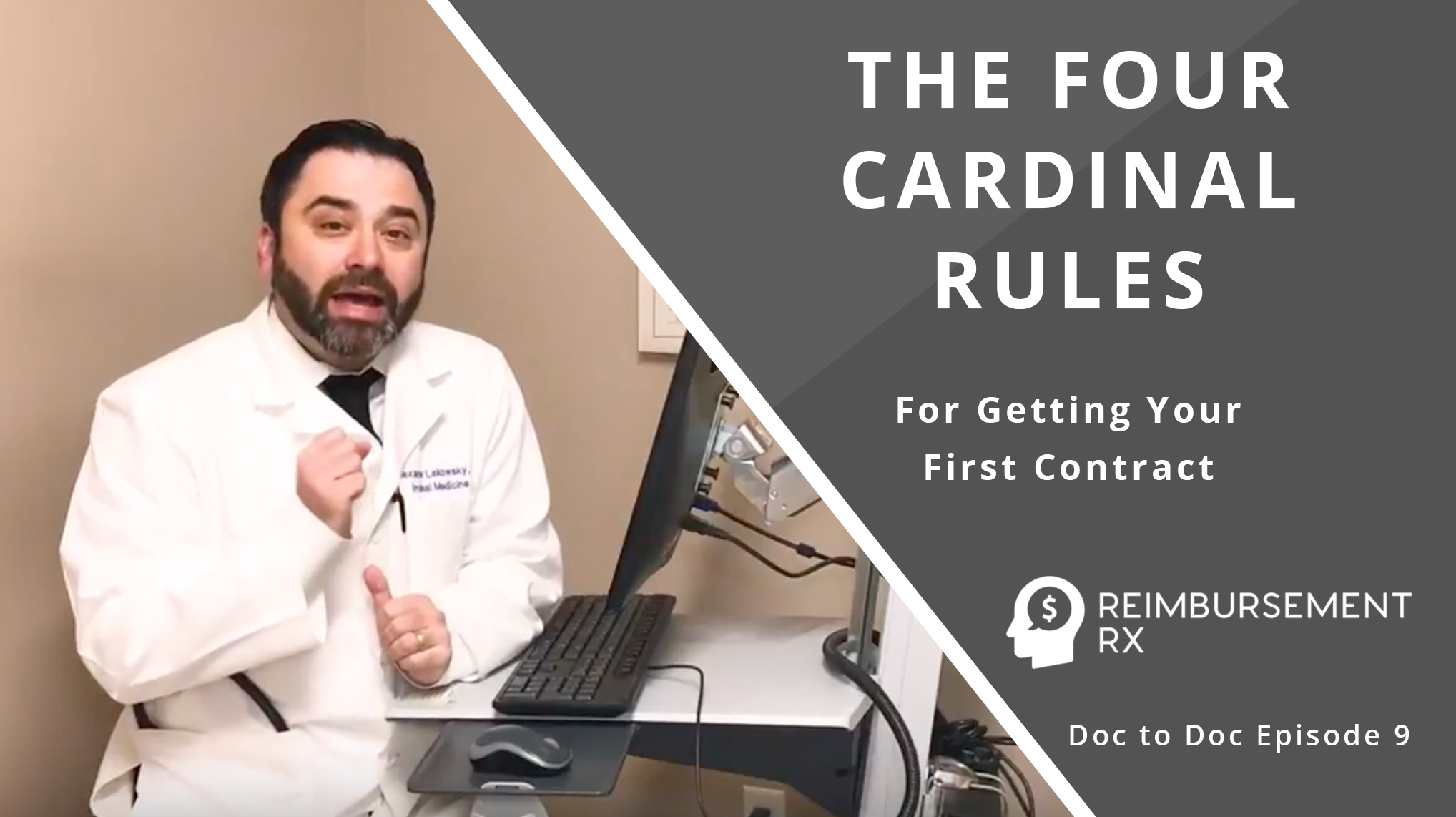







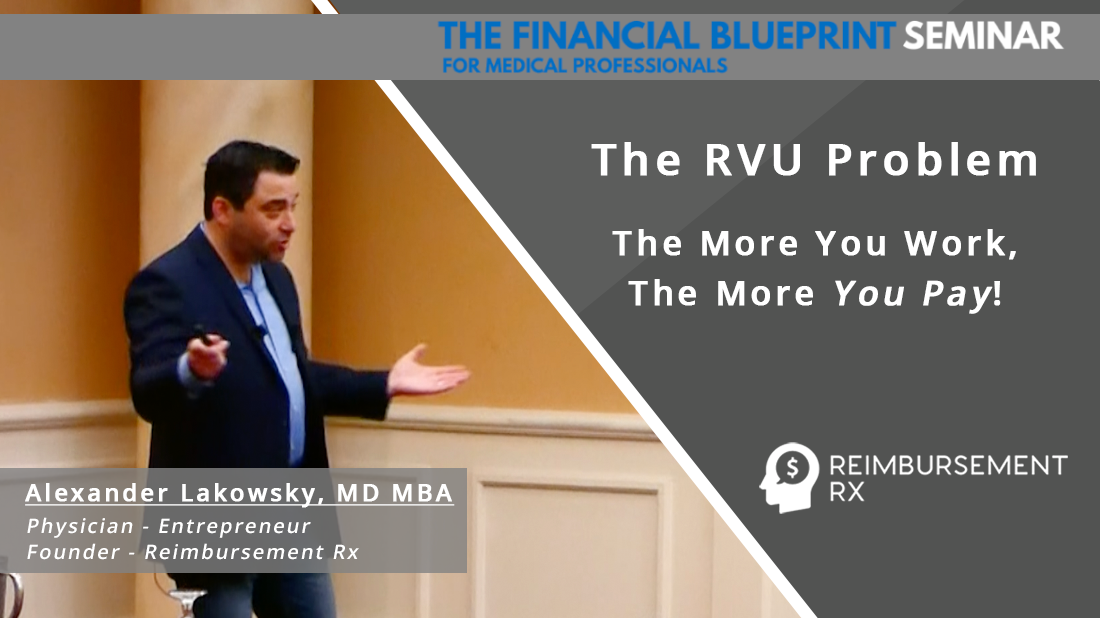
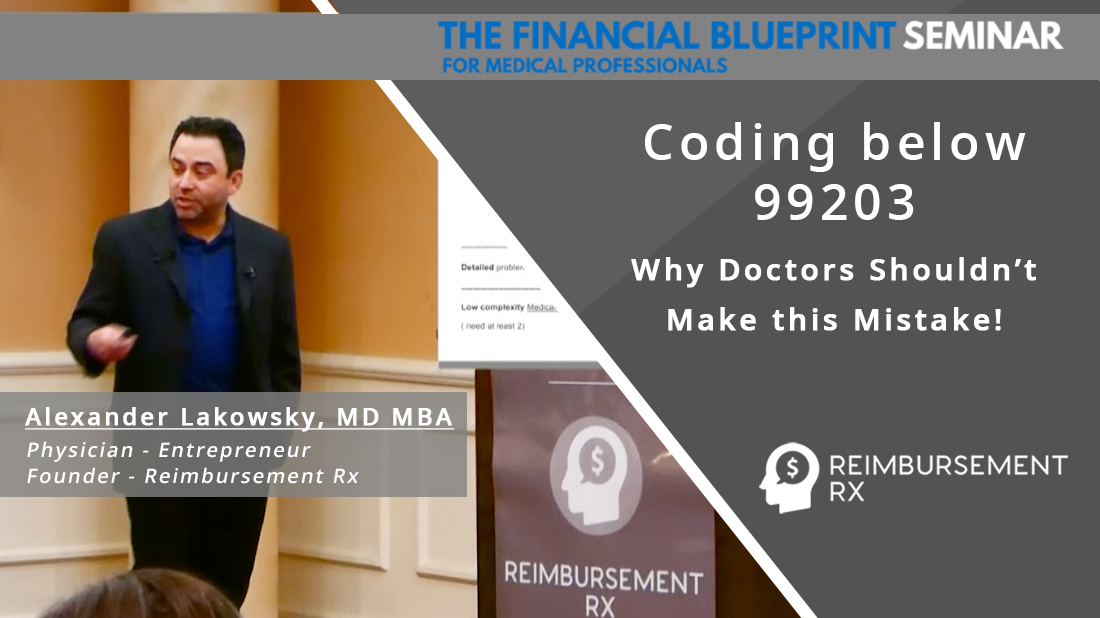




















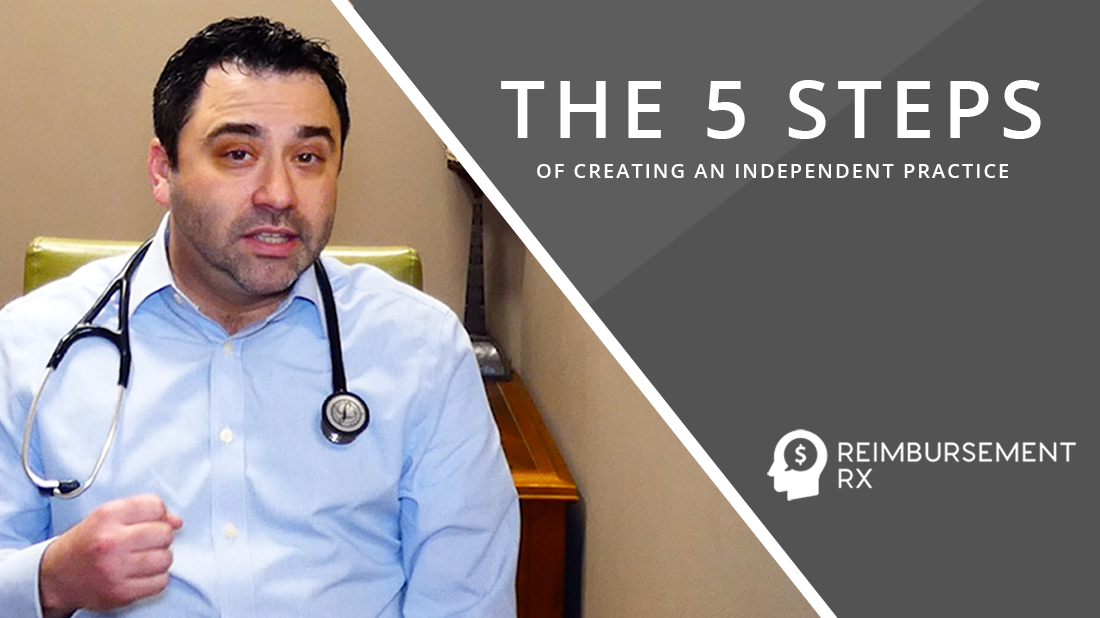
The basic reason for doctors to understand billing practices is simple - this is how they get paid! Yet, this system is constantly changing both from the doctor's and patient's perspective. When doctors don't keep up, they miss out on compensation on their side and clarity from the patient's side.